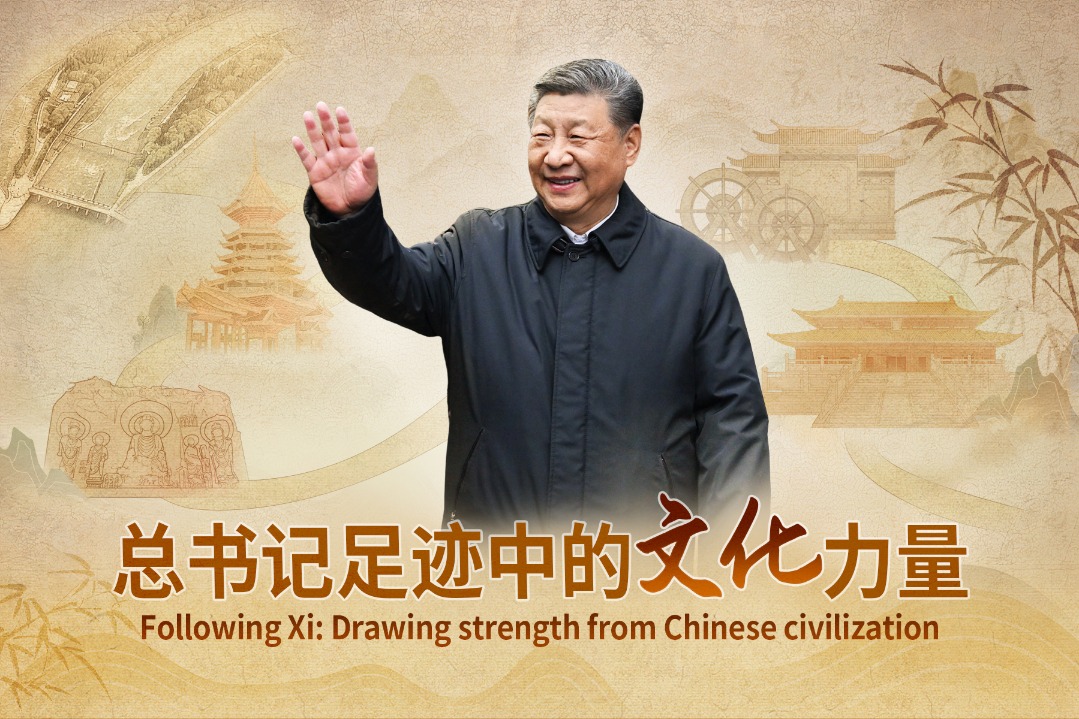China crucial for European firms

While companies are finding success, they also face stricter regulations
China has emerged from the global economic crisis as a key market for growth in many industries. This growth was mainly driven by public investment. Many industries have participated in it directly, such as through increased purchasing, indirectly as part of the supply chain, or through the trickle-down effect to the consumer level.
Earlier this year, the European Chamber of Commerce in China surveyed its 1,600 member companies for its annual Business Confidence Survey. The survey found that on average, European companies reported growth in both revenue and profit. The majority of the more than 600 respondents reported positive net profit. Most companies are confident this momentum will continue and are willing to invest during the next two years to be part of the growth.
China is clearly becoming more strategic for our members. Their performance in China has now become crucial for global success and failure is no longer an option.
This does not mean it is getting easier to enter or operate in China. Competition is fierce and foreign-invested enterprises and domestic enterprises alike are stepping up their game. Scarce human and natural resources are leading to more pressure on recruiting talent as well as rising input costs.
The Business Confidence Survey also revealed that companies perceive a further deterioration of the playing field; more than a third of respondents signaled that over the past two years, government policies continue to discriminate against foreign-invested enterprises, and nearly half of the respondents believe this will get worse in the next two years.
High stakes
The European Union recently became China's largest trade partner, for exports as well as imports. Despite the imbalance in trade volume, this relationship is one of mutual benefit. Chinese goods and services serve European customers, and the European industry participates in China's remarkable growth.
The survey showed that foreign-invested enterprises are aware of the growing strength of domestically funded companies in areas such as marketing and sales. They are confident in their ability to compete in China, based on quality, innovation and design, efficiency and process management.
Furthermore, European companies are global leaders in many of the industrial areas that are closely aligned with China's macro objectives of high-tech, energy efficiency and sustainable growth. As such, they are well-positioned to contribute toward China's economic growth model as defined by the 12th Five-Year Plan (2011-2015).
Healthy competition
According to the survey, the revenue and profit of European companies are growing. Profit margins in China are at about the global average with equal numbers of survey respondents noting that profit margins in China are the same, lower or higher, respectively, than their average worldwide. Given the current high-growth stage of the Chinese economy, it's fair to assume that most of that profit has been reinvested in China.
While European companies are confident in their ability to engage in fair and healthy competition, they also mentioned that Chinese companies retain competitive advantages in government relations, and access to subsidies and financing. This contributes to a sharp increase in the percentage of European companies that expressed pessimism about China's future implementation of trade policies. Our members told us that the need for a transparent and well-regulated market is more important than ever before.
A fair deal?
Forty-three percent of European companies, according to the survey, perceive the Chinese regulatory environment as more unfair toward foreign companies during the past two years. Moreover, almost half expect this trend to continue. Approximately one-quarter of European companies believe that China is actively looking for loopholes in the World Trade Organization agreement to avoid making required changes. An even greater percentage said that there is a regulatory willingness to make the required changes, but that implementation lags far behind.
This perception of implementation problems is in alignment with the top two regulatory obstacles identified within the survey, namely a discretionary enforcement of broadly drafted laws and regulations and a lack of coordination between different regulators.
China must follow through, not only with improved and fairer regulations, but with implementation of regulations at all levels of government. Rule of law and predictability are imperatives for business planning for any well-run company. Because of perceived gaps in these enablers and as a direct result of anticipated government policies, one in five European companies has suspended or is reconsidering investment plans.
The release of the draft form of the Foreign Investment Catalogue in April disappointed many foreign companies. While the European Chamber welcomes the opportunity to comment on the catalogue, as the first major implementation document following the release of the 12th Five-Year Plan, it indicates few if any changes in terms of market access for foreign companies. This would have been a good starting point for the liberalization of various industrial sectors to foreign investment and participation.
At the same time, the chamber welcomed the initiation of a pilot program that will permit three foreign travel operators to engage in outbound travel from China for the first time. This is a small but important initial step to opening up this and other markets.
The 2011 Business Confidence Survey demonstrates that despite an uneven competitive environment, the European industry is doing well in China. A level playing field to face the increased competition and to drive excellence is in the interest of all companies in China, regardless of their source of funding. The biggest hurdle to achieve this is, as it has been for many years, the comprehensive and coherent implementation of thorough legal and regulatory codes that have been enacted by the Chinese government. Given the size and the importance of the trade relationship between China and the EU, closer cooperation toward building open markets can only benefit both sides.
The author is secretary-general of the European Union Chamber of Commerce in China.






























